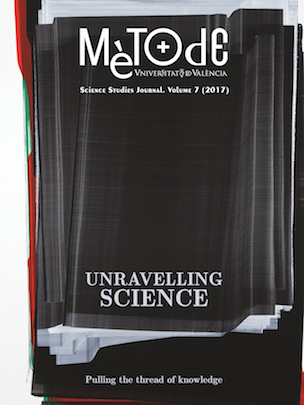Editorial
DOI:
https://doi.org/10.7203/metode.7.10502 Abstract
Abstract
Mètode Science Studies Journal is a rare bird. Its pages want to reconcile the latest advances in research and the review of each particular science; mixes science communication and excellence research. It focuses on the intersection between academic research, scientific essay and science popularisation. As a matter of fact, its readers are not only experts, not even scientists in a broad sense, but anyone who tries to keep abreast of scientific news and wants to reflect on the challenges of contemporary culture. The quality standard awarded by Scopus, as well as other indexes, guarantees that our path – which we walk almost alone, since similar editorial projects are scarce – remains on track. We live in a world where the progress of science and technology goes faster and faster, where the need to reflect on their scope and impact turns more and more decisive every day. This issue of Mètode Science Studies Journal collects essential topics in current scientific research, such as the secrets of neuroscience, the connection between science and ideology, gender issues related to scientific research and violent dynamics in our universe. All in all, Mètode Science Studies Journal delves on the great problems of current research from its characteristic transversality, together with the contributions of artists to provide the last touch of beauty and exclusivity.
Martí Domínguez. Editor-in-Chief of Mètode SSJ. University of Valencia (Spain).
 Downloads
Downloads
Downloads
Published
How to Cite
-
Abstract426
-
PDF220
Issue
Section
License
![]()
All the documents in the OJS platform are open access and property of their respective authors.
Authors publishing in the journal agree to the following terms:
- Authors keep the rights and guarantee Metode Science Studies Journal the right to be the first publication of the document, licensed under a Creative Commons Attribution-NonCommercial-NoDerivatives 4.0 International License that allows others to share the work with an acknowledgement of authorship and publication in the journal.
- Authors are allowed and encouraged to spread their work through electronic means using personal or institutional websites (institutional open archives, personal websites or professional and academic networks profiles) once the text has been published.





